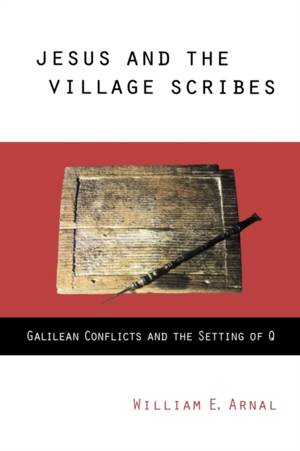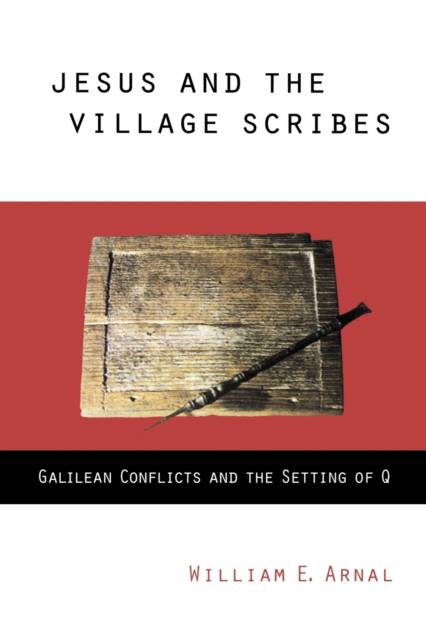
- Retrait gratuit dans votre magasin Club
- 7.000.000 titres dans notre catalogue
- Payer en toute sécurité
- Toujours un magasin près de chez vous
- Retrait gratuit dans votre magasin Club
- 7.000.0000 titres dans notre catalogue
- Payer en toute sécurité
- Toujours un magasin près de chez vous
Jesus and the Village Scribes
Galilean Conflicts and the Setting of Q
William E ArnalDescription
This volume challenges Gerd Theissen's dominant thesis of "wandering radicals" as the earliest spreaders of the Jesus tradition. Several conclusions emerge: (1) the textual evidence for the "wandering radicals" hypothesis is not tenable and it must be replaced with one that more closely comports with the evidence: (2) the immediate context of the Jesus movement, and of Q in particular, is the socio-economic crisis in Galilee under the Romans; and (3) the formation of Q is the product of Galilean village scribes in the Jesus movement reacting to the negative developments in Galilee that affected their social standing.
Arnal moves decisively beyond earlier Q studies, which focused almost exclusively on literary history without dealing with the social realitites of the first century.
Spécifications
Parties prenantes
- Auteur(s) :
- Traducteur(s):
- Editeur:
Contenu
- Nombre de pages :
- 304
- Langue:
- Anglais
Caractéristiques
- EAN:
- 9780800632601
- Date de parution :
- 01-01-01
- Format:
- Livre broché
- Format numérique:
- Trade paperback (VS)
- Dimensions :
- 153 mm x 229 mm
- Poids :
- 494 g

Les avis
Nous publions uniquement les avis qui respectent les conditions requises. Consultez nos conditions pour les avis.






